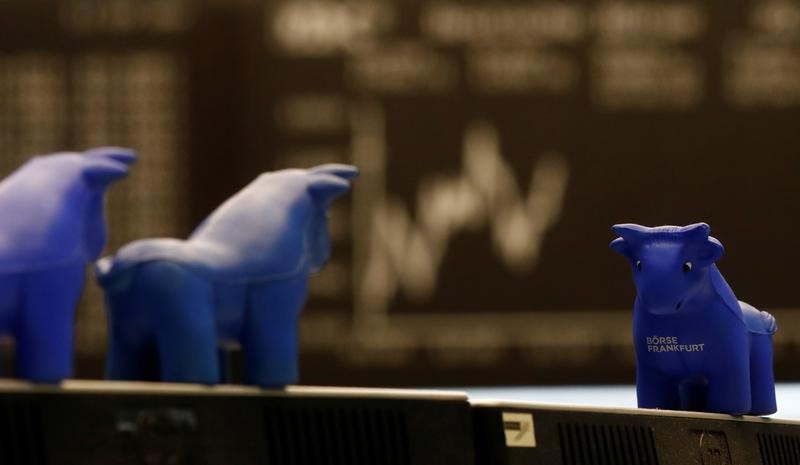This post was originally published on this site
https://i-invdn-com.investing.com/news/LYNXMPEE0E0CM_M.jpg
Investing.com – European stock markets traded higher Friday on signs that confidence surrounding the region’s economy is slowly recovering, ahead of the release of the Federal Reserve’s preferred inflation measure.
At 03:25 ET (08:25 GMT), the DAX index in Germany traded 0.1% higher, while the CAC 40 in France climbed 0.3% and the FTSE 100 in the U.K. rose 0.3%.
Data released earlier this session showed that U.K. consumer confidence rebounded in February, with the GfK’s consumer confidence index climbing seven points to minus 38. While this is still close to the historic lows triggered by the cost-of-living crisis, it still represented a 10-month high.
The forward-looking German GfK consumer climate index also improved to -30.5 in March, from -33.8 the previous month, while in France the February consumer confidence figure came in at 82 points, down from a revised figure of 83 for January but that had previously been given as 80.
German growth data was less encouraging, as the Eurozone’s largest economy contracted 0.4% in the final quarter of last year, which resulted in just 0.3% annual growth.
However, these numbers are historic, and business activity numbers in 2023 have been much more optimistic.
“The outlook for the world is slightly brighter at the beginning of 2023 than what we thought it would be just two or three months ago,” OECD Secretary-General Mathias Cormann said Friday in an interview on CNBC, adding that inflation challenges remain.
The extent of those challenges may be made plain in the U.S., the world’s largest economy, later in the session with the release of the core personal consumption expenditures price index for January, the inflation gauge the U.S. central bank studies the most closely.
The index is expected to be up 4.3% on a year earlier, compared with 4.4% the previous month, suggesting inflation will be tricky to tame.
In the corporate sector, BASF (ETR:BASFN) stock fell 3.8% after Europe’s biggest chemical firm announced a 12% drop in earnings in 2022. It also said it would be ending a share buyback program ahead of time and planned to cut 2,600 positions, about 2% of its global workforce, to try and cut costs.
IAG (LON:ICAG) stock fell 2.7% despite the owner of British Airways returning to profit in 2022, adding that profits would grow again this year. It also agreed on Thursday to pay €400 million (€1 = £1.0587) to Spain’s Globalia for the remaining 80% of airline Air Europa it did not already own.
Oil prices rose Friday as the prospect of reduced supply from Russia into the global market offset rising U.S. inventories.
Moscow plans to cut up to 25% of oil exports from its western ports in March, according to a Reuters report, which is more than the 500,000 barrel per day supply cut announced earlier.
This news has overshadowed the announcement of another increase in U.S. oil stocks, with data from the Energy Information Administration showing inventories grew for a ninth consecutive week to their highest level since May 2021.
By 03:25 ET, U.S. crude futures traded 1.3% higher at $76.39 a barrel, while the Brent contract rose 1.3% to $83.29. Both contracts were trading down less than 0.5% each for the week, having clawed back earlier heavy losses.
Additionally, gold futures rose 0.2% to $1,830.10/oz, while EUR/USD dropped 0.1% to 1.0589.


